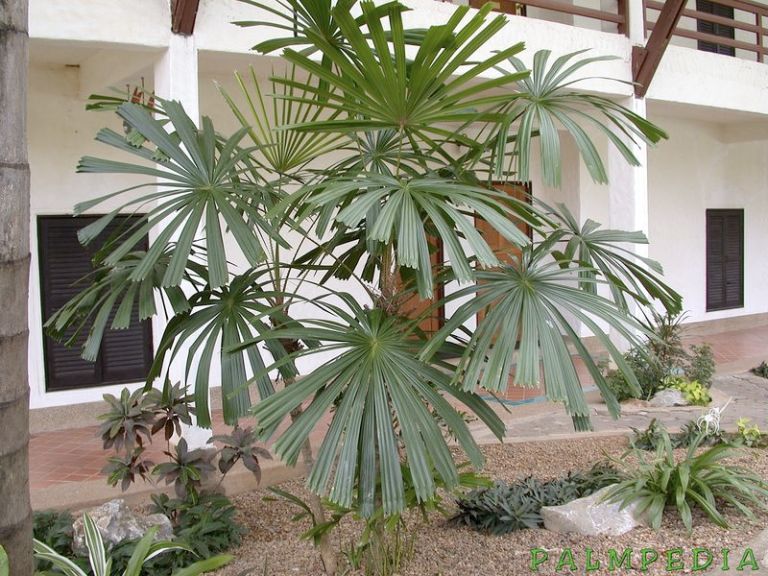About This Tree
ARECACEAE (Palm family)

Mangrove Fan Palm, also known by many other names like Spiny Fan palm, Spiny Licuala palm and Good Luck palm, is a small clustering palm native to Southeast Asia, from the Andaman Islands to the Philippines. It grows well in moist and wet coastal areas. It grows up to 5 meters in height and 23 cm across. Its multiple trunks are lined with a mesh of brown fibres and each of which is crowned with numerous beautiful palm fronds. The leaves are dark green, glossy and fan-shaped, bearing toothed edges. The leaves turn to almost grey when exposed to full sun. The flowers are sessile, either solitary or in group of 2-4, densely arranged and nearly oval in shape. The fruit is smooth but hairless and green in color when young that later on turns orange to red upon maturity.

Common Uses
The young shoots of Mangrove fan palm is used both as a raw and cooked. Apart from this, there are some folkloric uses of this palm. The Cambodian people make a mixture of its bark with other drugs for the treatment of tuberculosis. In Malaysia the meristem infusion is taken orally as antidote to poisoning. In Thailand, its leaves extract is used to treat the bites of centipede. It is also used for roofing, ornamentals, and decorations as well as in the making of walking sticks and hats.
Interesting Facts!
- It is called spiny Licuala because its leafstalk bears many tiny, pointed spines that can be painful to the touch.
- It is special from other palms as it can with stand up to -2 ̊C of frost.
- It is very suitable for indoor use as it grows very slowly.
References:
http://www.stuartxchange.com/Balabat.html
http://www.learn2grow.com/plants/licuala-spinosa/
http://www.llifle.com/Encyclopedia/PALMS_AND_CYCADS/Family/Arecaceae/28514/Licuala_spinosa
http://www.palmpedia.net/wiki/Licuala_spinosa
http://www.tropilab.com/licuala-spin.html
Want to know more? (More contents coming soon!)
